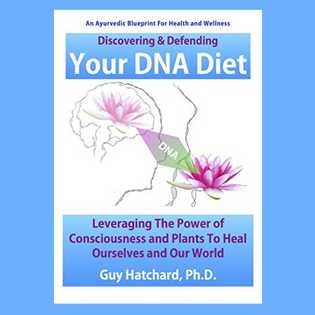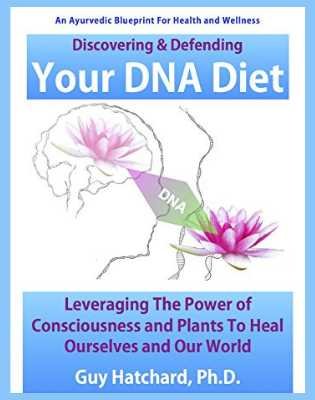Tom Rutherford, National MP for Bay of Plenty, is described by his party as an exciting young political prospect who is bringing experience and fresh insights to parliament. In his spare time Tom is a voluntary fireman, plays cricket and spends time with his partner. He is lauded as follows:
“His political journey stems from a desire to serve his community and tackle pressing issues. He emphasises active listening and humility in public service. Committed to building on past efforts, Rutherford aims to contribute to New Zealand’s progress for future generations. He believes that everyone deserves a fair shot at life.”
Just the sort of good Kiwi bloke we need in parliament, or is he?
Two days ago we reported at length a peer reviewed study published in a scientific journal covering the health records of all 8.4 million residents of Seoul, South Korea. under the title “A Cancer Study that Changes Everything with Results that Can’t Be Ignored“. The study found an alarming relative increase of 27% in cancer incidence among COVID-19 vaccinated individuals when compared to the unvaccinated over the one year period following their shots.
Following publication of our article, we received a lot of correspondence and comments. Mostly positive, but some dismissive. It is well worth looking at these in depth. Some people were concerned enough to forward our email and the study to their MP. Tom Rutherford wrote back promptly. I reprint his reply in full:
Hi ………,
Thank you for taking the time to write and for sharing your concerns.
I understand that the Gene Technology Bill is an issue many New Zealanders feel strongly about, and that change in areas like this can feel deeply unsettling.
However, I do not agree with the claims made about mRNA vaccines causing a 27% increase in cancer, or that there is a “war on humanity”. These statements are not supported by credible evidence, and it’s important we base decisions on robust science, not misinformation.
The purpose of the Gene Technology Bill is not to remove safety protections, but to modernise rules that are nearly 30 years old, while strengthening safeguards, improving transparency, and ensuring New Zealand isn’t left behind in medical, environmental, and agricultural innovation.
Key protections being added or strengthened include:
- Mandatory registration and public disclosure of exempt organisms released into the environment
- Independent regulatory oversight, separate from ministerial direction
- Annual reporting to Parliament and a full statutory review after four years
The Bill seeks to balance innovation with public safety, public scrutiny, and scientific rigour. It is not a free-for-all, and it does not override health safeguards or allow unchecked experimentation. I will continue to take a careful, evidence-based approach as the Bill progresses, weighing up both opportunity and risk. Thank you again for writing, and for engaging on something you care deeply about.
Thanks,
Tom
Tom was right about one thing, if he had read our article carefully or clicked on the link to the study, he would have realised that cancer incidence did not increase by 27%, but rather the incidence among people receiving a COVID-19 vaccine was 27% higher than among those unvaccinated. Instead, Tom labelled the cancer increase as lacking any ‘credibility’ and added that word that ends all dialogue ‘misinformation’. He went on to assure his constituent that he was able to “balance innovation with public safety, public scrutiny, and scientific rigour.” But he didn’t cite any scientific evidence of his own. He went on “I will continue to take a careful, evidence-based approach as the Bill progresses, weighing up both opportunity and risk.” You can tell me what you think of Tom’s approach.
Houston we have a problem
I don’t really want to single out Tom, he is just one of 123 MPs, most of whom seem to be addicted to an annoying habit of dismissing alarming results of newly published scientific studies. Tom did send a reply to his constituent. Most MPs no longer bother if the inquiry is about COVID-19 vaccine safety or the Gene Technology Bill. At best, MPs send out a form letter with the same trite phrases used by Tom, promising regulatory oversight, stronger safeguards, transparency, not being left behind in the modern world, etc none of which hold up to scientific scrutiny or correctly represent the likely effect of the provisions of the Gene Technology Bill. As the weight of evidence of COVID-19 vaccine harm has mounted, these form letters amount to an outright rejection of public health imperatives and the sanctity of human life. None of this makes any sense anymore and the MPs who are glibly ignoring scientific evidence need to be called out.
Criticism of our report and the actual study was not limited to MPs, some people from the medical profession and some anonymous critics wrote to tell us to stop publishing ‘misinformation’. These people could not deny that cancer incidence increased among the COVID-19 vaccinated relative to the unvaccinated, it definitely did and the size and scale of the increase was certainly scientifically and statistically significant. Instead they wrote to say that something else must be causing the cancer among the vaccinated. The main argument ran as follows: people who got COVID-19 vaccines did so because they were already sick and afraid of getting COVID-19, some of them must have already had cancer that had been developing undetected for some time. When their pre-existing sickness necessitated a doctor visit the cancer was fortuitously discovered.
The critics responding to our article presented no evidence that this was the case. I am sure you can work out for yourself that their suggestion is highly unlikely if not preposterous. However the authors of the study were well aware that they would receive such push back. They did in fact carefully match vaccinated and unvaccinated individuals by prior conditions, to specifically minimise this possibility.
A powerful verification of the study is contained in its finding that the relative cancer risk increased further if a booster shot was taken. Moreover, this was not an isolated finding, it syncs with similar results in studies of Japanese pancreatic cancer survival rates and Italian health data that we have reported previously.
Other critics wrote that cancers mostly take more than one year to develop so prima facie COVID-19 vaccination could not be the cause. That is perhaps the most frightening thing about the study, it did find that cancers were developing rapidly after COVID-19 vaccination implying that the active genetic sequences in the novel COVID-19 vaccines were interfering with immune system responses to cancer.
There is much other evidence that this could be the case. Most recently for example a study of the health records of the entire 51 million population of South Korea published last week in the Journal of Infectious Diseases is entitled “Incidence of Respiratory Infections after the COVID-19 Pandemic (2023–2024) and Its Association of Vaccination Among Entire Populations in Korea“. This study found significant large increases in the patterns of respiratory infection associated with COVID-19 vaccination. It concluded:
“COVID-19 vaccination may be differentially associated with respiratory infections in the post-pandemic era, reflecting shifts in population-level immunity and highlighting the need for adaptive public health strategies.”
In September our article “It’s not unusual” reported high levels of respiratory infection here in New Zealand. We wrote:
“So what is happening? Our Hatchard Report article yesterday entitled “NZ First’s Intention to Reach a Gene Technology Bill Compromise Would Be a Grave Mistake” offered some insight into the possibility of Horizontal Gene Transfer allowing some of the nastier engineered genetic sequences of COVID-19 to migrate to other illnesses. It can also be that the immunity levels of the whole population have fallen due to the combined effect of COVID-19 and the mRNA Vaccines.”
The results of the just-released population-wide Korean study support our contention.
Two powerful studies of huge data sets which should be raising alarm bells in the corridors of power and the wards of our hospitals. Instead, the powers that be are dismissing the implications as ‘misinformation’. They are refusing to face scientific reality, instead talking about our health crisis and overcrowded hospitals as the result of administrative errors or lack of funding rather than increased illness.
Worse, they are ignoring the red flags and pushing ahead to deregulate biotechnology. The Gene Technology Bill is listed on the Parliamentary Order Paper for a second reading in the near future.
The assumption of power over truth and science goes right back to the previous Parliament when all parties repeated the ‘safe and effective’ mantra so frequently that they now believe they can decide truth or falsehood without even looking at scientific evidence. That narrative has long since fallen apart but most MPs and medical professionals are clinging to it as a drowning man clings to a log. There is human life and public health at stake but that perspective has long been abandoned in favour of parliamentary omnipotence.
There is an unfortunate history here that needs to be revisited. Many knowledgeable people with scientific backgrounds were dismissed as conspiracy theorists when they raised legitimate concerns about COVID-19 vaccine safety. Their early concerns have now been repeatedly validated by careful scientific analysis of data published in reputable journals undertaken by people who are very clearly not in any sense conspiracy theorists. Continuing to trot out labels like ‘misinformation’ is no longer appropriate. Continuing to shield New Zealand public health data from independent scrutiny is no longer acceptable or reasonable. It never was; and now we are more sure than ever that the practice of dismissing legitimate concerns without any investigation or evidence poses a grave danger to public health and life. The Gene Technology Bill is a step in the wrong direction off the edge of a cliff with sharp rocks below. Can we state this any more clearly? The Bill should no longer be appearing on the parliamentary order paper. All this would be laughable, if the predictable outcomes weren’t so serious and deadly.






